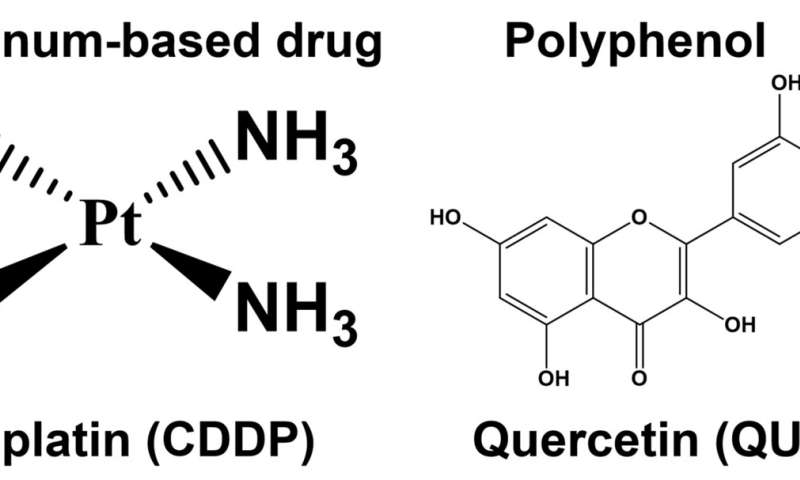Preventing cancer cells from becoming resistant to chemotherapy drugs

Biochemists from RUDN University described how to prevent cancer cells from becoming resistant to chemotherapy drugs. Having determined the resistance mechanism, biochemists selected a drug that can slow down it. The results were published in the International Journal of Molecular Sciences.
Chemotherapy remains the mainstay of cancer treatment in most cases. One of the most common anticancer drugs is the platinum-containing cisplatin. It is effective in the fight against sarcomas and other types of malignant tumors. The disadvantage of this treatment is the gradually emerging resistance of tumor cells to the antitumor drug. Biochemists from RUDN have described a method that allows one to "cancel" resistance to cisplatin in vitro on ovarian cancer cells.
"Platinum-based anticancer drugs, such as cisplatin, are established chemotherapeutic agents in the treatment of certain types of malignancies. However one of the main obstacles to effective chemotherapy is resistance to cisplatin. Drug resistance can develop through several mechanisms. Our goal was to understand these mechanisms and study possible ways to eliminate resistance," said Elena Kalinina, Doctor of Biological Sciences, Professor of the Department of Biochemistry, RUDN University.
Previously, RUDN biochemists discovered that cisplatin resistance in ovarian cancer cells is affected by overexpression of several genes. The authors also showed that quercetin (a compound from the group of flavonoids) helps reduce this effect. Therefore, biochemists have suggested that treating cells with quercetin first and then with cisplatin can help avoid resistance. Biochemists tested this assumption on cancer cells of the SKOV-3/CDDP lines.
Preincubation of tumor cells with quercetin before exposure to cisplatin resulted in significantly improved outcomes. With 48 hours of preincubation at the optimal dose (60 micromoles), quercetin reduces the proportion of surviving cancer cells to approximately 25% if the action time of cisplatin is also 48 hours. Without prior exposure to quercetin, this proportion is about 80%.
"Our in vitro data show that quercetin sensitizes cisplatin-resistant cells. To confirm that, further studies are needed with other cell lines that are resistant not only to cisplatin but also to other anticancer drugs. Future experiments will be aimed at confirming the effect of preincubation with quercetin in vivo. This will allow us to evaluate its potential for eliminating resistance to cisplatin in tumor cells," said Elena Kalinina, Doctor of Biological Sciences, Professor of the Department of Biochemistry, RUDN University.
More information:
Aseel Ali Hasan et al, Potentiation of Cisplatin Cytotoxicity in Resistant Ovarian Cancer SKOV3/Cisplatin Cells by Quercetin Pre-Treatment, International Journal of Molecular Sciences (2023). DOI: 10.3390/ijms241310960
Provided by Russian Foundation for Basic Research